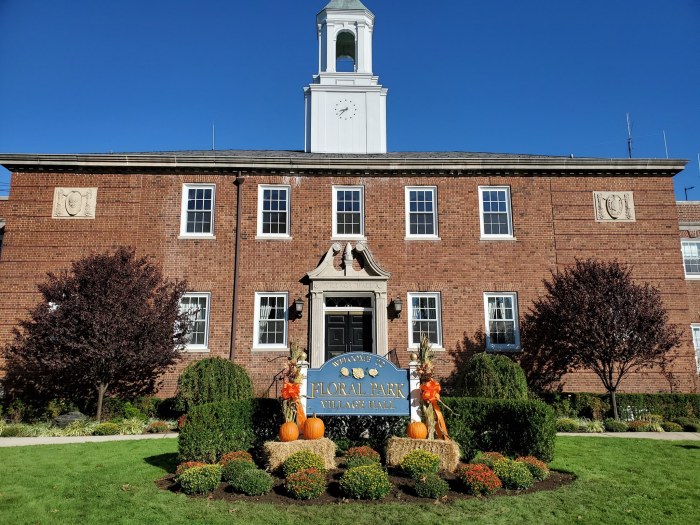Officials from all three Nassau County towns came together in Island Park on Tuesday, April 1, to fight back on recent state initiatives to push for more large-scale energy projects in the area.
The town supervisors for Hempstead, North Hempstead and Oyster Bay were joined by members of the Barnum Island Fire District and other officials as they openly challenged the Renewable Action through Project Interconnection and Deployment Act and detailed the risks to public safety as well as the cost to local communities.
“Albany has basically sidestepped local zoning when it comes to energy issues and is putting in effect ways to circumvent the voices of the residents who live in the areas where these projects are being processed,” Hempstead Supervisor Don Clavin said.
According to the state Department of Public Service, the RAPID Act, which was enacted in April 2024, consolidated the environmental review, permitting and siting of major renewable energy facilities and major electric transmission facilities under the responsibility of one office, the Office of Renewable Energy Siting and Electric Transmission. The state said this would allow them to streamline projects, but Nassau officials believe otherwise.
“They claim they simply want to streamline the process, but this is steamrolling, you, me and all of your local officials right out of the process,” North Hempstead Supervisor Jennifer DeSena said.
Oyster Bay Supervisor Joseph Saladino shared a similar sentiment.
“The RAPID Act currently being pushed through by state bureaucrats strips away our ability to decide what’s best for our community,” he said.
The state said the biggest change brought by the RAPID Act relates to the approval and permitting of “major” electric transmission facilities. These are defined as transmission lines that have a capacity of 125 kilovolts or larger and are at least one mile in length or have a capacity of 100 kilovolts or larger and are at least 10 miles in length, on the state’s website. The RAPID Act said approval for these transmission lines has been transferred to the office and that regulations must be made public no later than April 20.
There is public a comment period open until April 18, in which all three town supervisors called for the residents to take part.
Frank Bettineschi, a Barnum Island Fire District commissioner, said further questions on the RAPID Act need to be asked.
“Island Park is becoming a dumping ground,” he said. “We can’t have that.”
Saladino called the storage facilities dangerous to private property, public safety and the environment. He mentioned the Moss Landing Energy Storage Facility fire in California in January that caused an evacuation of the facility, extensive damage to the facility and many environmental concerns, according to published reports.
The Town of Oyster Bay has had two six-month moratoriums on lithium battery storage facilities.
The town has previously opposed a proposal from the Jupiter Power Company to build a 275-megawatt lithium battery storage facility in Glenwood Landing. The facility would be located near the Glen Head and Glenwood Landing elementary schools and multiple civic associations.
It also has expressed previous concerns about Propel NY Energy’s proposed large-scale electric transmission lines that would go through all three towns in the county. This project does not involve any large-scale battery storage but would add 58 miles of underground power transmission lines throughout Nassau County and could break ground in 2026.
The North Hempstead Town Board adopted a one-year battery storage facility moratorium in December 2024.
The Town of Hempstead unanimously voted to place a one-year moratorium on battery storage facilities in February. There was a large-scale proposal in Island Park, within view of Tuesday’s press conference, which was halted due to the temporary ban.
The three town supervisors joined forces in March to fight back against the state’s effort to take more control of zoning. Saladino called it a “theme” for town officials to call out the state.
































